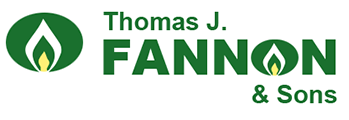As outdoor temperatures continue to drop, many of us are relying on heating systems to keep homes warm and cozy. Heat pumps, known for their efficiency in moderate climates, face unique challenges as the mercury falls. While effective in transferring warm air even in cool conditions, they can run into several issues when the weather turns particularly cold. We highlight four common issues that can affect heat pump performance during the fall and winter months.

- Frost Build-Up on the Outdoor Unit. One common issue that arises during cold weather is the build-up of frost on the heat pump’s outdoor unit. A minor amount of frost is normal due to the condensation and freezing process. However, if the system fails to defrost efficiently, this frost can accumulate, insulating the coils and hindering the unit’s ability to transfer heat. To prevent this, regularly inspect the outdoor unit for excessive frost and ensure the defrost cycle functions correctly. If the issue persists, it may indicate a need for professional maintenance.
- Struggling to Heat in Extremely Low Temperatures. Heat pumps may struggle to work in extremely cold weather. Their efficiency declines as the temperature outside falls, making it harder to extract enough heat from the outdoor air. You can mitigate this issue during installation—it’s imperative that the unit is sized correctly for your home.
- Emergency Heat Mode Activation. Heat pumps have their emergency heat mode, also known as auxiliary heat. This mode kicks in when the system can’t extract enough heat from the outside, switching to an electric resistance heater. While this ensures your home remains warm, it is far less efficient than the heat pump’s normal operation. Keep an eye on your thermostat to make sure your system isn’t unnecessarily switching to emergency heat mode, and consult with a professional if this occurs frequently.
- Malfunctioning Defrost Cycle. The defrost cycle is crucial for preventing too much frost from covering the outdoor unit. A malfunction here can lead to efficiency issues or damage. Symptoms of a faulty defrost cycle include the heat pump running excessively long defrost cycles or not running them when needed. If you suspect a problem with the defrost cycle, be sure to contact an HVAC professional for a thorough inspection and repair.
Troubleshooting Heat Pump Issues
The following are some of the tips to keep in mind to minimize issues that can affect your heat pump’s efficiency and performance during cold weather:
- Regular Maintenance. Schedule annual maintenance checks with a professional technician to ensure all components of your heat pump are in optimal condition.
- Inspect and Clean. Regularly inspect the outdoor unit, removing any debris, snow, or ice that might obstruct airflow and efficiency.
- Monitor Noise Levels. Pay attention to the sound your heat pump makes. Increased noise could indicate a problem that requires professional attention.
- Check the Settings. See to it that your thermostat is set correctly for heating and not accidentally left in cooling mode.
- Professional Expertise. For issues beyond basic troubleshooting, such as a unit not turning on, producing insufficient heat, or if the emergency heat mode is frequently activated, seeking expert advice is advisable.
For all your HVAC needs this fall and winter, turn to Thomas J. Fannon & Sons. We offer heat pump installation, repair and maintenance services to residents in and around Alexandria, VA. Call us at (703) 549-5700, or fill out our contact form to schedule an appointment.


Leave a Reply